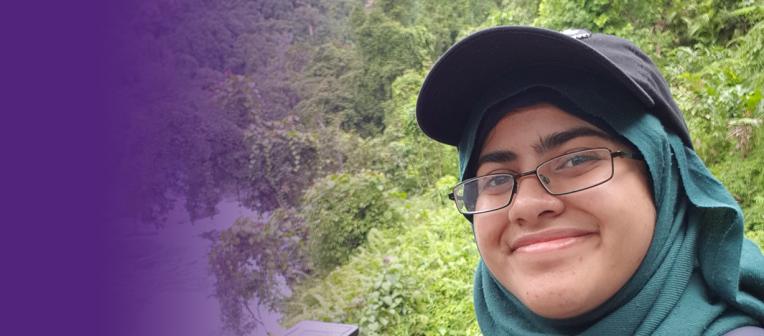Ever wanted to know what it’s like to study psychology? Erfa Shahzad, a current UQ Bachelor of Psychological Science (Honours) student, discusses the discipline and her experiences studying the program.
Why did you want to study psychology?
I’ve encountered a lot of people with mental health issues in my life and I wanted to go into a field where I could be someone capable of helping those people. I also just love everything about psychology! Learning about how and why people act the way they do, how to improve myself and how to help others… It’s all been really fascinating and great to learn.
What type of person enjoys studying psychology?
I think two types of people enjoy studying psychology – those who are fascinated by human behaviour and those who are interested in being able to utilise the social and/or medical aspects of psychology.
How hard is studying psychology?
I think psychology is a lot more science-focused than a lot of people realise. There’s a lot of statistics too. If that’s something you’re comfortable with, I think psychology is not too challenging. However, if writing reports and using statistical programs sounds daunting to you, it will probably be difficult to pursue it. Personally, I find the most challenging aspect for me is writing reports. Sometimes I find it difficult to motivate myself to get started and dedicate time to planning and writing.
Despite these challenges, I thoroughly enjoy course content and its practical implications. One thing about psychology is that we tend to use techniques ourselves that we would later recommend to others, and those have been very helpful.
What are the most valuable skills you’ve learnt?
I would say the most valuable skill I’ve learned is interpreting studies – how words can be misleading, how to tell a study was conducted well and had meaningful findings. This skill is extremely valuable, because now I can look into topics beyond psychology and interpret findings. I think critical thinking is one of the most valuable skills one can have, and I’m grateful to practise it in my classes.
What are you looking forward to in your career in psychology?
I’m looking forward to using my skills and expertise to help people with mental health issues, perhaps in counselling or therapy. I would love to work with people from minorities as I personally understand the additional issues that arise as being part of a minority.
Any advice for others interested in studying psychology?
Be aware of your limits and make sure to work with them instead of pushing yourself to get over them. Sometimes the content matter can be upsetting. Sometimes the assignments are long. Sometimes the statistics are complicated. Not every psychology skill you learn is something you will be able to utilise for yourself, and that’s okay too.
Learn more about UQ’s Bachelor of Psychological Science (Honours)






